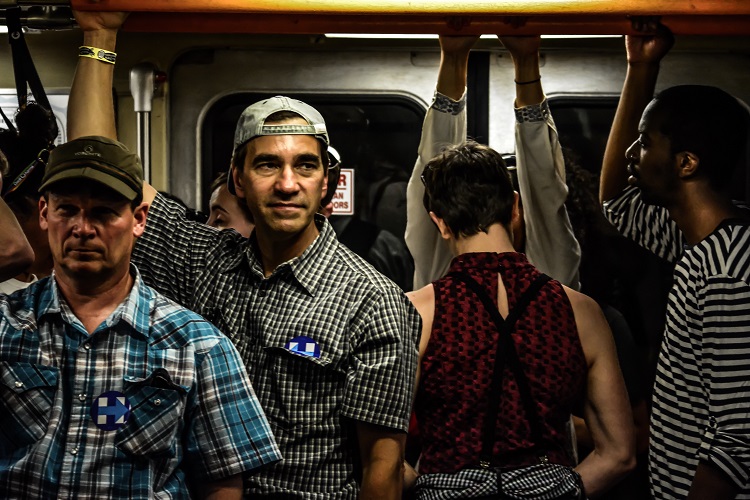Let’s face it: Hustle culture is dead, and Gen Z is dancing on its grave.
“What is your dream job?” is a question students and new graduates hear all too often. However, Gen Zers are firing back with a bold “I don’t dream of labor.” And rightfully so.
Among the many bits of normalcy the COVID-19 pandemic has stolen from us since the beginning of 2020, our relationship with work drastically changed too. From having steady shifts to being hyper-connected in remote offices and from feeling engaged with our coworkers to being virtually alienated from our social circles, all this has led us, especially the younger generations, to rethink our priorities.
Anti-work sentiment has become part of our social discourse — and a recent trend on social media — for more reasons than just the virus. As a way of claiming back power from oppressive employers and exploitative jobs, some took advantage of the pandemic to participate in what organizational psychologist Anthony Klotz called the “Great Resignation,” an ongoing phenomenon of employees voluntarily quitting their jobs.
At the forefront of the “Big Quit” are young adults — namely, millennials (age 25–40) and Gen Zers (age 18–24). Although other driving factors influence trends in employee resignation rates, the pandemic created the perfect excuse to leave a toxic work environment or simply aspire for more flexible, better-paying jobs.
“No one wants to work anymore”
“We are short-staffed,” a sign outside a Sonic in Albuquerque, New Mexico. “Please be patient with the staff that did show up. No one wants to work anymore.”
Similar signs went viral on social media, sparking a debate that has not yet been resolved. On the one hand, users criticized the inequalities under the economic model of capitalism. On the other hand, some people labeled the current generations as “lazy” or “entitled.”
What is clear, though, is the general unconformity with the current state of the job market. Furthermore, there is a rejection of the American dream: “a land with opportunity for each according to ability or achievement,” as defined in James Truslow Adams’ book “The Epic of America” (Simon Publications, 2001). The idea that upward mobility is available to anyone who can pull themselves up by their bootstraps is no longer awake in the collective consciousness.
But, does Gen Zers and millennials opposing this romanticized version of labor in American society mean they are lazy? Far from it.
The burnout generation
Long work shifts, back-to-back meetings, unpaid additional responsibilities, and the lingering sensation that we must be productive every second of our existence — this behavior is far too common among hardworking Americans who struggle to make ends meet.
However, the constant grind has not led people to be financially secure, but rather severely burnt out.
According to a survey by Business Insider of over 1,000 American workers, 61 percent said they were currently “at least somewhat burned out.” This comes as no surprise since “hustle culture” and “workaholism” became the standard approach to professional life.
In “Can’t Even: How Millennials Became the Burnout Generation” (Mariner Books, 2020), culture writer Anne Helen Petersen argues that the current state of our socioeconomic systems has set up the younger generations, notably millennials, for burnout.
The normalization of hustle culture, of putting work above everything else, has been traditionally blamed on capitalism. Since the 20th century, with experts like German economist Werner Sombart, concepts such as “late-stage capitalism” had already pointed out the absurdities, contradictions, and inequities created by modern capitalist systems.
So, does working hard really lead you to achieve a successful, financially stable job? Gen Z doesn’t seem to think so.
Should we dream of labor?
While America’s wealthy 1 percent continue to amass billions of dollars despite a global pandemic and purchase expensive tickets to travel to space, many Gen Zers are questioning whether they should base their entire life decisions on a “dream job” or career path. Rather than constructing their personalities entirely around labor, some view it as merely an obligation to supply their basic needs.
However, not “dreaming” of labor automatically translates to a lack of professional aspirations. Instead, it is an opportunity to get rid of the toxic mindset that we live to work, rather than we work to live.
At the core of the movement lies humans’ endless pursuit of profound, meaningful purpose. While some may find it in their profession, others are not so sure they will find it in low-wage jobs or wearying, physically demanding shifts. Nevertheless, the quest for our dream jobs is not wrong in and of itself.
Mostly thanks to the pandemic, we have learned to value the stillness and slow-paced lifestyle that results from not being constantly surrounded by the societal expectation that the more we exhaust ourselves at work, the more deserving of success and happiness we are.
Burnout because of “workaholism” and toxic productivity will inevitably lead to a general dissatisfaction with work and other professional experiences. Consequently, to deter the increasing number of resignations, we must start encouraging healthy distance with our jobs to not lose the most vital parts of our identities.
Therefore, while Gen Zers celebrate the death of hustle culture, the longing for vocational purpose is slowly becoming the social norm — and that’s what we should aim for.



